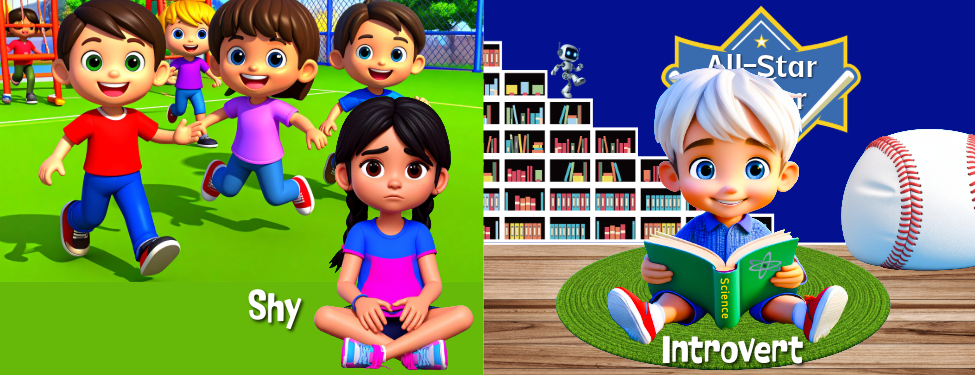Introversion vs Shyness
As parents, understanding the unique personalities of our children is one of the most rewarding parts of our journey with them. For families with quieter kids, it can be tricky to discern whether they are shy, introverted, or both. These two personality concepts are often used interchangeably, but they are not the same. Here’s a guide to help you understand the distinction between introversion and shyness and how to help your child navigate the world.
Introversion and Shyness Defined
A child with an introverted personality trait draws from his or her internal energy. As an introvert, your child feels rejuvenated when spending time alone or in quiet settings. Too much social stimulation can be mentally draining for introverts. For the most part, introverts are not averse to social interaction. However, they need a balance of downtime and social interaction to replenish their energy.

On the other hand, shyness is an emotional response often coupled with anxiety or discomfort in social situations. Shy children may worry about being judged or fear negative reactions by others, which can make it hard for them to interact socially, even if they want to.

While introversion is about personal preference and energy, shyness is about fear and anxiety. A child can be introverted and not shy. Depending on the situation, a child can be shy but extroverted, or a mix of both.
Typical Characteristics
Understanding the difference between introversion and shyness in children is key to recognizing their unique social and emotional needs. These guides highlight the distinctions between these characteristics, helping caregivers, educators, and parents foster environments that support both personality types in a way that nurtures their confidence and well-being.



Why It Matters
Understanding whether your child is introverted, shy, or both can help you tailor your parenting style to meet your child’s individual needs. An introverted child needs your understanding of their energy and mental limits, while a shy child might need extra reassurance and practice navigating social interactions. By distinguishing your child’s personality traits, you can create an environment that makes your child feel supported, valued, and empowered.
Remember, the goal is not to change who they are but to guide them in developing the confidence to navigate life’s challenges in their own unique way.
*Disclaimer: alextheintrovert.com and 3870Creative Company are not affiliated with or sponsored by any of the programs mentioned above. The information provided is for informational purposes only.





